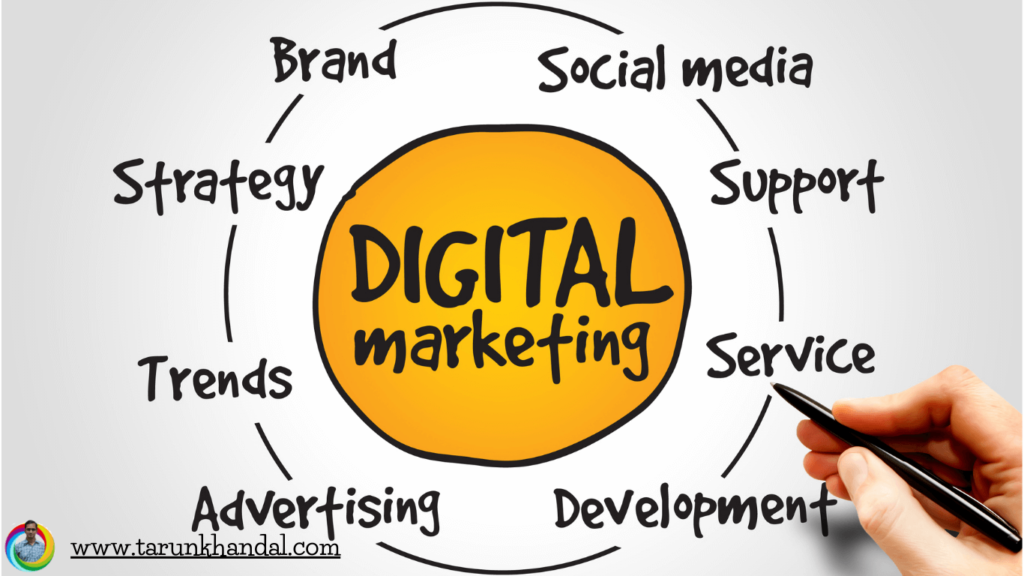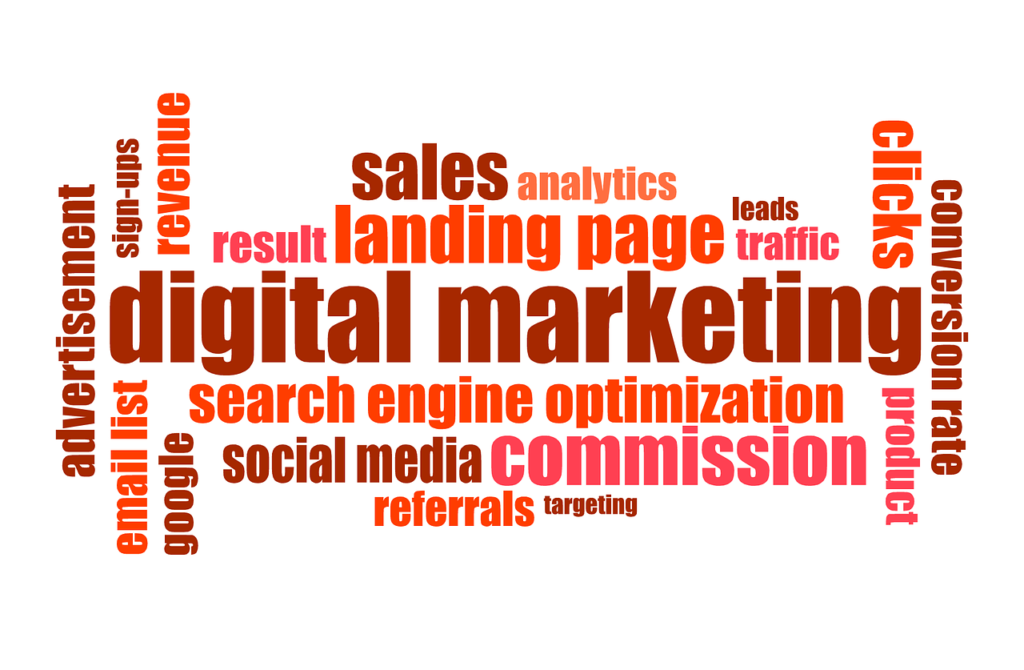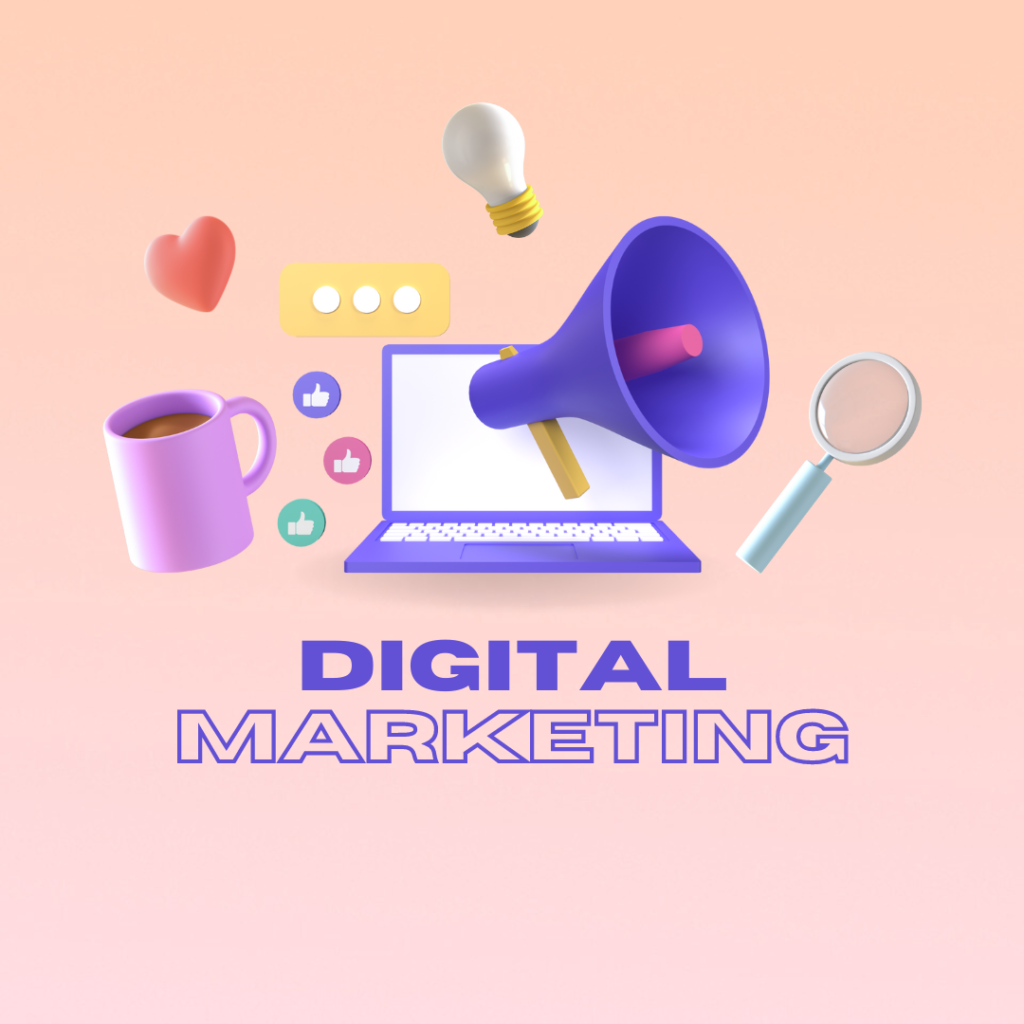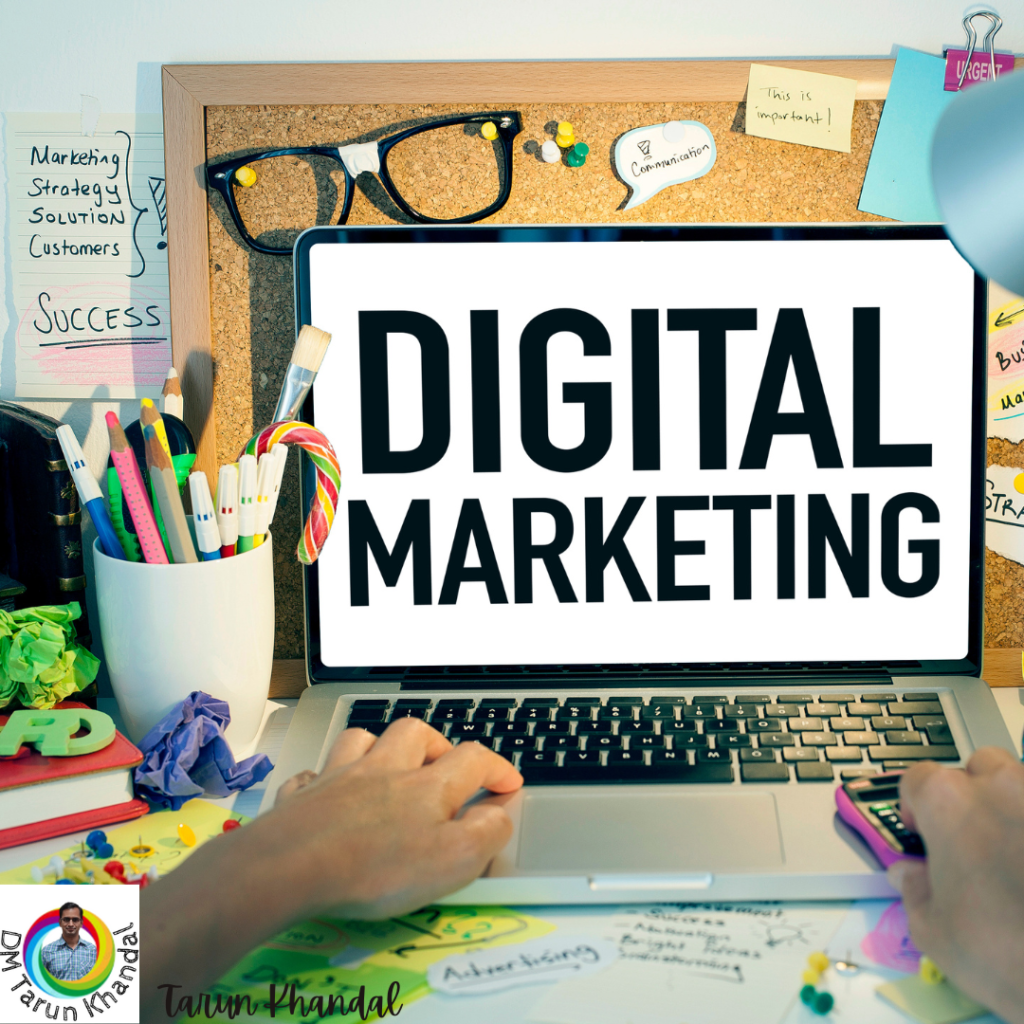Certainly, here’s a comprehensive guide to digital marketing training that covers various aspects of this dynamic field, providing insights, strategies, and best practices. This guide is divided into several sections, each focusing on a key aspect of digital marketing. Let’s get started.

Table of Contents:
- Introduction to Digital Marketing Training
- What is Digital Marketing?
- Why Digital Marketing Matters
- The Evolution of Marketing
- The Digital Marketing Landscape
- Understanding the Digital Ecosystem
- Key Digital Marketing Channels
- Trends and Challenges in Digital Marketing
- Digital Marketing Strategy
- Setting Objectives and Goals
- Target Audience Identification
- Competitor Analysis
- Creating a Digital Marketing Plan
- Website and SEO
- The Role of a Website in Digital Marketing
- SEO Fundamentals
- On-Page and Off-Page SEO
- Local SEO and Mobile Optimization
- Content Marketing
- Content Marketing Basics
- Content Strategy Development
- Content Creation and Curation
- Content Distribution and Promotion
- Social Media Marketing
- Leveraging Social Media for Marketing
- Platform Selection and Profile Optimization
- Content Creation and Scheduling
- Community Building and Engagement
- Email Marketing
- The Power of Email Marketing
- Building and Segmenting Email Lists
- Creating Effective Email Campaigns
- Measuring Email Marketing Success
- Pay-Per-Click (PPC) Advertising
- Introduction to PPC Advertising
- Google Ads and Bing Ads
- Ad Campaign Setup and Optimization
- Remarketing and Display Advertising
- Affiliate Marketing
- What is Affiliate Marketing?
- Becoming an Affiliate Marketer
- Running Successful Affiliate Programs
- Tracking and Performance Analysis
- Influencer Marketing
- The Rise of Influencer Marketing
- Identifying and Collaborating with Influencers
- Measuring Influencer Campaign ROI
- Legal and Ethical Considerations
- Analytics and Data-Driven Marketing
- The Importance of Data in Digital Marketing
- Tools and Platforms for Data Analytics
- Conversion Rate Optimization (CRO)
- A/B Testing and Data Interpretation
- Marketing Automation
- Introduction to Marketing Automation
- Benefits of Marketing Automation
- Implementation and Best Practices
- Customer Relationship Management (CRM) Systems
- Video Marketing
- The Impact of Video in Digital Marketing
- Video Content Creation
- Video SEO and Distribution
- Measuring Video Marketing Success
- Mobile Marketing
- The Mobile-First Approach
- Mobile Apps and App Store Optimization
- SMS and Mobile Advertising
- Location-Based Marketing
- E-commerce and Digital Marketing
- Digital Marketing in E-commerce
- Product Listings and Optimization
- Shopping Ads and Customer Reviews
- Cart Abandonment and Remarketing
- Regulations and Ethics in Digital Marketing
- GDPR and Data Privacy
- FTC Guidelines and Disclosure
- Ethical Considerations in Marketing
- Handling Negative Publicity
- Measuring ROI in Digital Marketing
- Key Performance Indicators (KPIs)
- Setting ROI Goals
- ROI Calculation Methods
- Continuous Improvement and Adaptation
- Future Trends in Digital Marketing
- Artificial Intelligence and Machine Learning
- Voice Search and Smart Speakers
- Virtual Reality and Augmented Reality
- Blockchain and Cryptocurrency

1. Introduction to Digital Marketing Training
What is Digital Marketing?
Digital marketing refers to the use of digital channels, platforms, and technologies to promote and advertise products, services, or brands to a target audience. It encompasses a wide range of online activities designed to connect with customers where they spend a significant portion of their time – the internet.
Digital marketing has grown exponentially in recent years, thanks to the widespread adoption of the internet and mobile devices. This growth has transformed the way businesses market their products and engage with customers. Traditional marketing methods, while still relevant, are no longer sufficient on their own. Companies must adapt and incorporate digital marketing strategies to remain competitive in today’s digital-first landscape.
Digital marketing encompasses a diverse range of tactics and channels, including but not limited to websites, search engines, social media, email, content marketing, pay-per-click advertising, and more. Each of these channels offers unique opportunities for businesses to reach and engage with their target audience.
Why Digital Marketing Matters
Digital marketing matters for several reasons:
- Wider Reach: The internet allows businesses to reach a global audience, breaking down geographical boundaries.
- Cost-Effective: Digital marketing often costs less than traditional advertising, making it accessible to businesses of all sizes.
- Measurable Results: Digital marketing campaigns can be accurately measured and analyzed, providing valuable insights into their performance.
- Personalization: It allows for highly targeted marketing, ensuring that content is relevant to specific segments of the audience.
- Real-Time Engagement: Digital marketing enables immediate interaction and feedback, enhancing customer engagement.
- Competitive Advantage: Businesses that effectively leverage digital marketing can gain a competitive edge in their industries.
- Adaptability: The digital landscape is constantly evolving, and digital marketing strategies can be adapted to new trends and technologies.
The Evolution of Marketing
Marketing has come a long way from its traditional roots. Traditional marketing involved print advertising, television and radio commercials, billboards, and direct mail. While these methods are still in use, the focus has shifted to digital marketing due to its efficiency, cost-effectiveness, and the ability to precisely target and measure results.
The rise of the internet and mobile devices has changed the way consumers discover and engage with brands. Consumers now turn to search engines and social media for product research, reviews, and recommendations. This shift in consumer behavior has led businesses to adapt their marketing strategies to fit the digital landscape.
Today, the essential components of marketing include a strong online presence, engagement on social media platforms, the creation of high-quality, valuable content, email marketing, and data-driven decision-making. Digital marketing is not just an option; it is a necessity for businesses looking to thrive in the digital age.

2. The Digital Marketing Landscape
Understanding the Digital Ecosystem
Digital marketing operates within a vast and dynamic ecosystem. To navigate this landscape effectively, it’s essential to understand its key elements:
- Websites: The foundation of digital marketing, where businesses showcase their products, services, and content. A well-structured, user-friendly website is critical for online success.
- Search Engines: Platforms like Google, Bing, and Yahoo are primary sources of information for users. Search engine optimization (SEO) is crucial for ranking well in search results.
- Social Media: Social networks like Facebook, Twitter, Instagram, LinkedIn, and others provide opportunities for businesses to connect with their audience, share content, and run targeted advertising campaigns.
- Email Marketing: A direct communication channel with potential and existing customers. Email campaigns are used for promotion, newsletters, and customer retention.
- Content Marketing: Involves creating and sharing valuable content to attract and engage the target audience. Content can take the form of blog posts, articles, videos, infographics, and more.
Digital marketing is a rapidly growing field that offers many exciting opportunities for those who want to learn the skills necessary to succeed in this dynamic industry. If you are considering a career in digital marketing, or if you simply want to learn more about this important field, there are many digital marketing training programs available that can help you achieve your goals.
What is Digital Marketing Training?
Digital marketing training is a program that teaches you the skills and knowledge necessary to succeed in the digital marketing industry. This training can cover a wide range of topics, including:
- Search engine optimization (SEO): SEO is the process of optimizing your website to rank higher in search engine results pages (SERPs). This can help you to attract more organic traffic to your website.
- Pay-per-click (PPC) advertising: PPC advertising is a form of online advertising where you pay each time someone clicks on your ad. This can be an effective way to reach a targeted audience with your message.
- Social media marketing: Social media marketing is the use of social media platforms to promote your brand and products or services. This can be a great way to connect with potential customers and build relationships.
- Email marketing: Email marketing is the use of email to send targeted messages to your audience. This can be an effective way to nurture leads and generate sales.
- Content marketing: Content marketing is the creation and sharing of valuable, relevant, and consistent content to attract and retain a clearly defined audience — and, ultimately, to drive profitable customer action.
- Web analytics: Web analytics is the process of collecting and analyzing data about your website traffic. This data can help you to improve your website’s performance and make better marketing decisions.

Benefits of Digital Marketing Training
There are many benefits to taking digital marketing training. These benefits include:
- Increased earning potential: Digital marketers are in high demand, and they can earn a high salary.
- Career advancement opportunities: Digital marketing is a growing field, and there are many opportunities for career advancement.
- Job satisfaction: Digital marketing is a challenging and rewarding field, and many digital marketers find their work to be very satisfying.
- Flexibility: Digital marketing is a flexible field, and many digital marketers are able to work from home or remotely.
How to Choose a Digital Marketing Training Program
There are many different digital marketing training programs available. When choosing a program, it is important to consider the following factors:
- Your goals: What do you hope to achieve by taking digital marketing training?
- Your experience level: How much experience do you have with digital marketing?
- Your budget: How much can you afford to spend on digital marketing training?
- The program’s reputation: Do some research to make sure that the program you are considering has a good reputation.
- The program’s curriculum: Make sure that the program covers the topics that you are interested in learning about.
- The program’s instructors: Make sure that the program’s instructors are qualified and experienced.
Once you have considered these factors, you can start to narrow down your choices and choose the digital marketing training program that is right for you.
Here are some of the top digital marketing training programs available:
- Google Digital Garage: Google Digital Garage is a free online training program that covers the basics of digital marketing.
- HubSpot Academy: HubSpot Academy offers a variety of free and paid online courses on digital marketing.
- Lynda.com: Lynda.com offers a variety of paid online courses on digital marketing.
- Udemy: Udemy offers a variety of paid online courses on digital marketing.
- Coursera: Coursera offers a variety of paid online courses on digital marketing from top universities and organizations.
Tips for Success in Digital Marketing Training
Here are a few tips for success in digital marketing training:
- Be engaged: Make sure that you are engaged in your training and that you are asking questions.
- Practice what you learn: The best way to learn digital marketing is to practice what you learn.
- Network with other digital marketers: Networking with other digital marketers can help you to learn new things and find job opportunities.
- Stay up-to-date: The digital marketing industry is constantly changing, so it is important to stay up-to-date on the latest trends and technologies.
- Be patient: It takes time to learn digital marketing, so be patient with yourself.
Conclusion
Digital marketing training is a great way to learn the skills and knowledge necessary to succeed in this dynamic industry. With hard work and dedication, you can achieve your digital marketing goals.


